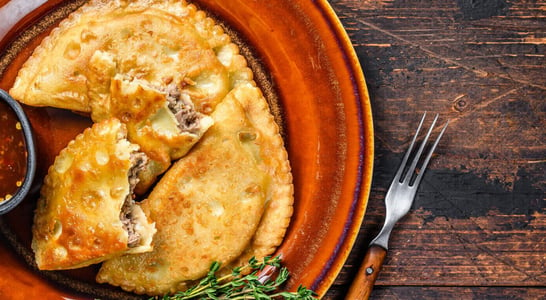
International Romani Day
International Romani Day both honors and celebrates the Romani people’s rich culture, history, and contributions. But the day also intends to raise awareness about the challenges and the discrimination that their people still face today.
So, while the occasion marks significant moments in Romani culture and history, it is also a platform for advocacy and awareness.
How to Celebrate International Romani Day
Celebrating International Romani Day involves both recognition and action. Here are some ways to participate:
Educate Yourself and Others
An excellent way to honor International Romani Day is by looking further into the rich story of Romani culture and history.
This education journey can begin with literature that offers deep insights into their heritage and struggles. A recommended starting point is Ian F. Hancock’s “We Are Romani People,” which provides a comprehensive look into the Romani experience.
Understanding their history, from their origins in South Asia to their current presence worldwide, is crucial in appreciating the significance of this day.
Attend Cultural Events
International Romani Day presents a unique opportunity to immerse oneself in the vibrant Romani culture through various local events and exhibitions.
These events often feature an array of cultural expressions, including performances that showcase the Romani people’s diverse and rich musical traditions, art shows that display the depth and vibrancy of Romani artistry, and educational talks that provide insights into their way of life and history.
Participating in these events enriches one’s understanding and shows solidarity with the Romani community.
Support Romani Artists and Businesses
Supporting Romani artists and businesses is a tangible way to celebrate International Romani Day. By purchasing art, music, or other products created by Romani individuals, one contributes to the community’s economic empowerment.
This support is crucial in preserving and promoting the rich cultural heritage of the Romani people, ensuring that their artistic expressions and traditional crafts continue to thrive and gain recognition in the wider world.
Raise Awareness
In the digital age, raising awareness about International Romani Day can be effectively achieved through social media platforms.
Sharing posts and articles, and using dedicated hashtags like #InternationalRomaniDay, #RomaniDay, and #Romani can significantly increase the day’s visibility and the issues surrounding the Romani community.
This digital advocacy is vital in educating a broader audience and fostering a global conversation about the Romani people’s culture, contributions, and challenges.
Advocate for Rights and Inclusion
Advocacy for the rights and inclusion of the Romani community is critical to observing International Romani Day. Engaging in dialogues about the systemic challenges and discrimination Romani people face is essential.
Supporting policies and initiatives that promote their inclusion, rights protection, and social justice is a way to honor their heritage and a step toward creating a more equitable and inclusive society.
Participate in Community Efforts
Active participation in community efforts aimed at improving the welfare of the Romani people is a meaningful way to commemorate International Romani Day. Joining or supporting organizations dedicated to this cause can have a profound impact.
Volunteering time or resources to these groups helps address issues like poverty, education, and social exclusion faced by the Romani community. Such involvement signifies a commitment to making a tangible difference in the lives of the Romani people.
Explore Romani Cuisine
Romani food is every bit as diverse as the culture. Check online for a few authentic recipes and try a taste of Romani fare. Some popular menu items to try cooking are these:
- Sarmi: Cabbage stuffed with minced meats, spices, and rice.
- Chorba: A delicious soup with meat, vegetables, and fragrant herbs.
- Mushroom Paprikash: A delicious, hearty stew made with mushrooms, onions, and paprika.
Whatever food you serve up, you will find Romani food as delicious as it sounds.
International Romani Day FAQs
What is the significance of the 16-spoke wheel on the Romani flag?
The 16-spoke red wheel on the Romani flag symbolizes the Romani people’s historical roots in India.
It resembles the Ashoka Chakra, a key symbol in Indian culture, and highlights their nomadic heritage.
It was chosen during the First World Romani Congress in 1971 to represent the community’s unity and shared history.
What is a common superstition or myth related to the Romani culture?
A popular myth is that Romani people can tell fortunes through magical powers.
This idea likely arose from their historical role as entertainers and their use of palm reading as a livelihood.
In reality, fortune-telling is often seen as a cultural art form rather than a mystical practice.
Why is Romani cuisine not as widely known as its music or dance?
Romani cuisine remains relatively unknown because their nomadic traditions meant cooking methods were highly adaptable and practical rather than focused on culinary presentation.
Popular dishes like “Goulash” in Hungary or spiced stews in Spain often reflect local influences, blending with their host cultures rather than standing out as distinct cuisine.
What is a unique way Romani communities celebrate their culture today?
In Hungary, Romani communities hold storytelling festivals where elders share oral histories.
This tradition preserves their heritage while educating younger generations about their ancestry and shared experiences.
How has the Romani language changed over time?
The Romani language evolved significantly, borrowing words and influences from countries where Romani people settled.
Dialects now incorporate terms from European languages, while retaining core Sanskrit roots. Efforts to standardize the language help strengthen cultural identity.
Did you know Romani artisans played a major role in medieval Europe?
During the Middle Ages, Romani blacksmiths were highly sought after for their skills in crafting metal tools and weaponry.
Their expertise made them crucial contributors to local economies, despite facing social discrimination.
How does Romani culture differ across regions?
While Western European Romani people are known for flamenco in Spain, Eastern European Roma are recognized for their brass band music.
Each community blends local customs with traditional Romani practices, creating rich regional variations.
What are some unusual stereotypes Romani people face?
A quirky stereotype is that Romani caravans are “magic homes.” In reality, the caravans, or vardos, were ingeniously designed for practicality and comfort, fitting their mobile lifestyle.
Are there Romani traditions specifically tied to weddings?
Yes, Romani weddings are colorful celebrations lasting several days. A common tradition includes a bridal dance where guests pin money to the bride’s dress as a gift.
What role did Romani people play in shaping jazz music?
Romani musicians, especially Django Reinhardt, profoundly shaped jazz by introducing gypsy jazz, a blend of swing and improvisation. Their distinct style remains influential worldwide.
History of International Romani Day
The idea of International Romani Day goes back to April of 1971. That was the date of the first International Romani Union (IRU) meeting in Chelsfield, located in the United Kingdom.
This groundbreaking event united 23 representatives from nine nations. More importantly, it set the stage for future collaboration and recognition.
However, it wasn’t until 1990, during the fourth World Romani Congress in Serock, Poland, that this day was officially declared as International Romani Day. This declaration was a key milestone in acknowledging the Romani community’s unique identity and struggles.
The Romani people, with their origins in South Asia, have a history marked by migration and cultural amalgamation. Over centuries, they have made significant contributions to the arts, music, and cultures of the countries they have resided in.
Despite this, they have faced and continue to confront challenges. From enslavement during the Middle Ages to Hitler’s mass extermination of the Roma people in Poland and Germany, the Romani people have been the target of systemic discrimination and untold horrors.
Also on ...
View all holidaysNational Zoo Lovers Day
Gather some friends and family and appreciate the incredible animals of the world by visiting, donating to, or volunteering at your local Zoological Garden.




